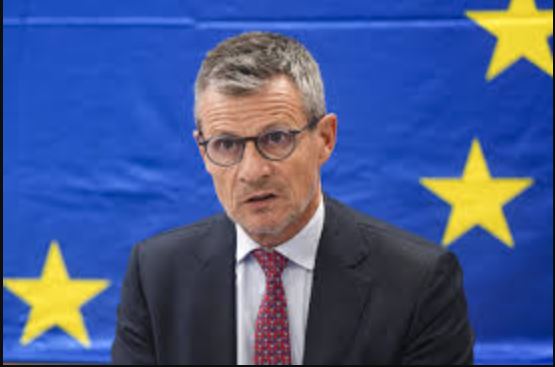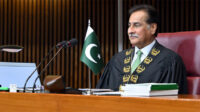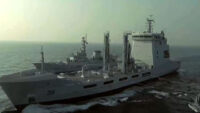The European Union’s envoy to India, Hervé Delphin, has described the latest round of India-EU trade negotiations as a “missed opportunity,” urging New Delhi to act decisively if a long-pending free trade agreement (FTA) is to be concluded by the end of this year.
Delphin, speaking at the launch of India’s World magazine, recalled that both sides had pledged to wrap up the FTA in 2025, but the 13th round of talks held in New Delhi earlier this month failed to meet expectations. “The strategic case for the deal is clear… now concrete deliverables must be the focus,” he said, adding that the EU had already shown readiness for a “meaningful package” and that the ball was now in India’s court.
The envoy stressed that the FTA carried strategic weight at a time of global disorder marked by intensifying US-China rivalry, nationalist politics, and erosion of multilateralism. He said the EU and India could complement each other to “de-risk economic turmoil and security uncertainties,” noting that Europe had relaunched talks in 2022 as part of its reassessment after Brexit, the COVID-19 pandemic, and Russia’s war in Ukraine.
Reports from Brussels confirm that key sticking points remain unresolved, particularly on agriculture, automotives, chemicals, steel, machinery, investment rules, and dispute settlement. The EU insists on enforceable commitments on trade and sustainable development, while India resists binding dispute mechanisms and sanctions. European negotiators have admitted that without credible sustainability provisions, “a chapter cannot be an empty shell.”
India, for its part, has raised concerns over the EU’s Carbon Border Adjustment Mechanism, deforestation laws, and due diligence regimes, warning these could raise compliance costs and restrict Indian exports. New Delhi is pressing for duty-free access for goods and easier mobility for skilled professionals, but continues to cite EU “protectionist regulatory measures and non-tariff barriers” as major hurdles.
The EU envoy also touched on geopolitical issues, warning that India’s close partnership with Russia remains a “question” in Brussels. He pointed to India’s participation in the upcoming Russia-Belarus ‘Zapad-2025’ military exercise and its record crude imports from Russia. “India wants to deepen ties with the EU, but squaring its Russia policy with that objective will require further consideration in Delhi,” he said.
Earlier this month, EU foreign policy chief Kaja Kallas echoed similar concerns while unveiling a new EU-India strategic agenda, noting that India’s continued military and oil ties with Moscow stood “in the way of closer relations.”






